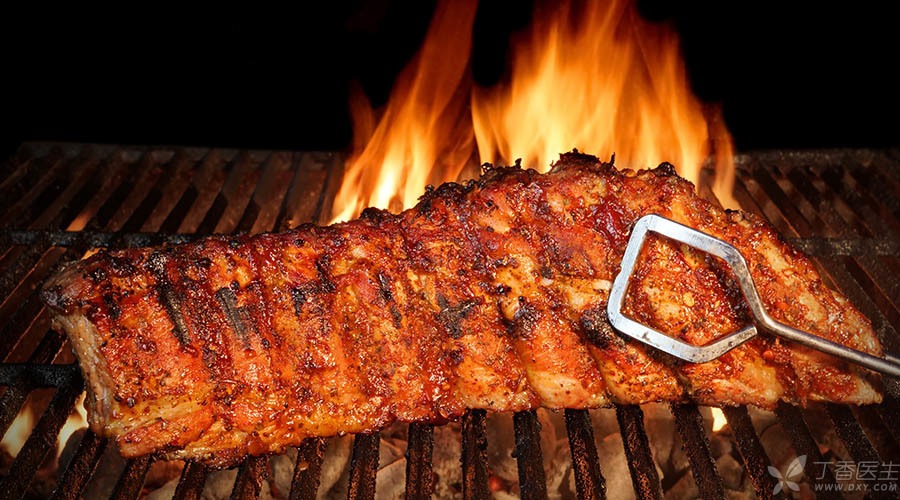
People often come to ask:
Is it true that vegetarian diet prevents cancer and meat causes cancer?
Heard that coffee can cause cancer?
… …
So, how do you know if a kind of food can cause cancer?
There is a special assessment of whether it is carcinogenic.
There is a [behind-the-scenes judge] who evaluates the carcinogenic effects of all kinds of things in our life. This is the International Cancer Research Center (IARC).
According to experimental analysis, epidemiology and other relevant data, and according to carcinogenicity, the International Cancer Research Center will divide everything into 5 grades: Category 1, Category 2A, Category 2B, Category 3 and Category 4.
Category 1 carcinogenic factors are clear and solid evidence, and there is strong evidence to prove that the mechanism of action on human beings is related to cancer.
Category 2 carcinogens are subdivided into two grades: Category 2A carcinogens have limited evidence of carcinogenesis to human beings, and there is strong evidence showing similar carcinogenic mechanisms to human bodies, while Category 2B is a substance that may cause carcinogenesis.
The three categories are basically things that people need not worry too much. Tea, coffee and cholesterol are the most mentioned.
There is only one substance (caprolactam) in the 4 categories, which is called impossible carcinogen.
These things are not recommended!
Let’s mainly look at Category 1 and Category 2A foods that are closely related to everyone-
Category 1 carcinogens (clear correlation and sufficient basis)
Alcohol: Oral Cancer, Pharyngeal Cancer, Laryngeal Cancer, Esophageal Cancer, Liver Cancer, Postmenopausal Breast Cancer
The carcinogenic effect of alcohol in human body can be said to be full bloom.
A study shows that compared with people who do not drink alcohol, people who drink a lot (drink more than 3 times a day) are more likely to suffer from upper gastrointestinal/respiratory tract cancer, lung cancer, female breast cancer, colorectal tumor and melanoma.
There are also studies that show that drinking is not only related to the above cancers, but also nasopharyngeal carcinoma, bladder cancer, prostate cancer, pancreatic cancer, etc. Therefore, the carcinogenicity of alcohol, the devil figure in the human body’s major systems are everywhere.

Processed meat: colorectal cancer, pancreatic cancer, gastric cancer
What is processed meat? The explanation of the International Agency for Cancer Research is: smoked, pickled, air-dried or other meat that increases taste or is conducive to preservation, including dried meat, ham, canned meat, cured meat and cured fish, etc.
There is sufficient evidence that eating processed meat products will lead to colon cancer. Eating 50 grams of processed meat products every day will increase the risk of colon cancer by 18%. “
Chinese Salted Fish: Nasopharyngeal Carcinoma
Salted fish, which is dehydrated by pickling and insolation and pickled with high concentration of salt, is a traditional Cantonese delicacy. However, during processing, a carcinogenic substance nitroso compound is produced, which has been proved to cause cancer in vitro experiments.
Aflatoxin: Liver Cancer, Renal Cancer
The most common is peanut corn contaminated by Aspergillus flavus. In addition, some processed foods using peanut raw materials (such as peanut butter) may also cause cancer due to moldy raw materials. Therefore, be sure to choose products from reliable manufacturers.
Other common type 1 carcinogenic diets include eating too much salt (which may lead to gastric cancer) and betel nut (which may lead to oral cancer).
At present, there are 118 members of Class I carcinogens. In addition to the above foods, there are also well-known cigarettes, benzene, arsenic, polycyclic hydrocarbons (common in cooking fume and automobile exhaust), various ionizing radiation, outdoor air pollution, etc.
Class 2A (probably associated with carcinogenesis)
Red meat: colorectal cancer, pancreatic cancer, gastric cancer
The International Agency for Cancer Research initially proposed that red meat is a likely carcinogen, causing quite a stir.
Red meat refers to meat that is red in its raw state and darkens when cooked, such as fresh red meat: meat of mammals such as cattle, sheep and pigs. Studies have confirmed that intake of red meat will increase the risk of colorectal cancer, lung cancer and pancreatic cancer.

Excessive hot diet: oral cancer, pharyngeal cancer, esophageal cancer
Regular consumption of food exceeding 65 degrees is easy to induce esophageal cancer, esophageal mucosa is repeatedly damaged under high temperature, and long-term repeated stimulation of esophageal mucosa is easy to cause canceration.
Nitrate and nitrite: esophageal cancer, liver cancer
Pickles and pickled products contain more nitrite, which will induce liver cancer and esophageal cancer.
There are also a series of foods made by frying, baking, barbecuing and other cooking methods in Category 2A. In addition to the above foods, there are many unfamiliar and abstract chemicals.
Surprisingly, all-night work has been included in this level.
For Class I and Class 2A carcinogens, the aim is to avoid them as much as possible. Especially alcohol, cigarettes and betel nuts, the harm of these substances to human body is not only their carcinogenicity.
Healthy lifestyle and eating habits are the best way to prevent cancer!
However, this does not mean that if you eat a little of these foods, you will get cancer. Cancer often occurs as a result of long-term accumulation of various carcinogenic factors. There is no need to panic too much if you eat them once in a while.
Click to experience 1 yuan and ask the doctor?
